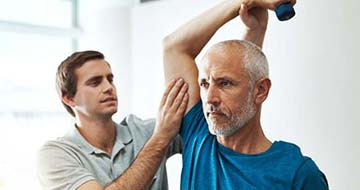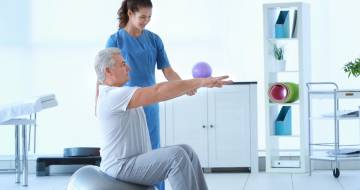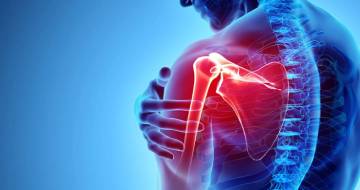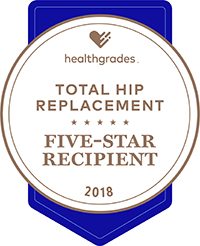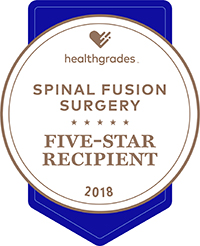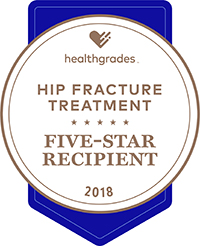Orthopedics
Delray Medical Center can help heal your shoulder injuries by giving you access to a large and experienced team of ortho...
Some joints are beyond rehabilitation. If you're moving in pain, learn about how joint replacement can get you back to d...
Learn about our minimally invasive Anterior Approach Total Hip Replacement – an alternative to traditional hip replaceme...
Pinecrest Rehabilitation Hospital’s Outpatient Physical Therapy Rehabilitation is committed to providing patients ...
Get information on evaluating foot or ankle pain and stiffness, treatment, and physical therapy offered through Delray's...
Whether you’ve dislocated your shoulder, torn a ligament, or are experiencing the pain and discomfort of tendoniti...
Orthopedic Services
Find an Orthopedic Specialist
Six Ways You’re Making Knee Pain Worse
While it may seem like knee pain is an inevitable fact of aging, you may be able to avoid it.
In fact, you may be doing some things unintentionally that are causing your knee pain, or making the aches and twinges you already have worse.
Do any of these sound familiar?
You’re overweight. Your knee joints are your shock absorbers and stabilizers. The more weight you carry, the more pressure on your knees. You don’t need to reach your so-called ideal weight to feel a difference; every pound you lose reduces the strain on your knees.
You don’t warm up or cool down properly when you exercise. Be sure to ease into workouts by starting slowly to give muscles a chance to warm up, and stretch adequately afterward, particularly the muscles in your legs. Flexibility is one important key to good knee health.
You jog or walk downhill a lot, or on hard surfaces. When you go downhill (or down stairs), you put more pressure on your knee joints. You can’t always avoid it, of course, but if you’re mapping out a walking or jogging route, you’re better off on gently sloping or flat surfaces. And speaking of surfaces, skip hard cement and pavement in favor of something with a little bit of bounce or give, like a running track or trail.
You wear ill-fitting shoes. Good arch support is important to help absorb some of the pressure your knees normally take. If you have flat feet, consider inserts for your shoes. (If you have arthritis, ask your doctor about special inserts specifically for you.) And avoid flip-flops and other very flat shoes with no support.
You don’t allow enough recovery time. Did you strain your knee playing tennis or some other sport? Most minor knee injuries will heal on their own with rest. (Try the RICE method: rest, ice, compression, elevation.) If you continue to exercise or play a sport when you have an injury, you’re more likely to make your pain worse and risk a more serious injury.
You’re resting too much. While you don’t want to, say, sign up for a 10K race when your knees hurt, avoiding movement altogether is also bad. The less you move, the weaker your muscles become. The weaker your muscles, the more work your joints have to do. With your doctor’s approval, find an activity that doesn’t aggravate knee pain, such as cycling, swimming, tai chi or walking.
Talk with your doctor for more information and treatment options for knee pain.



